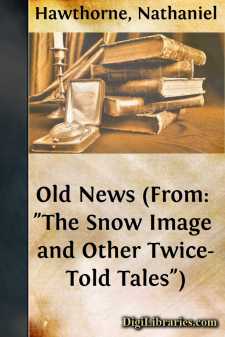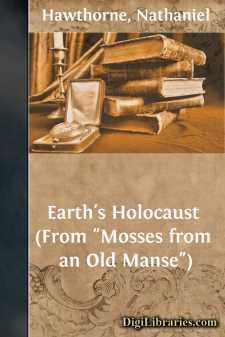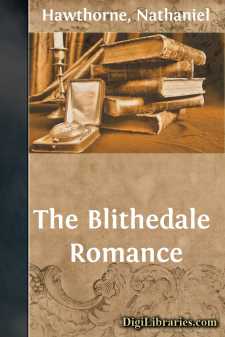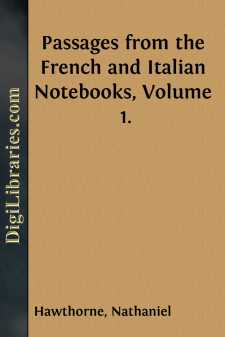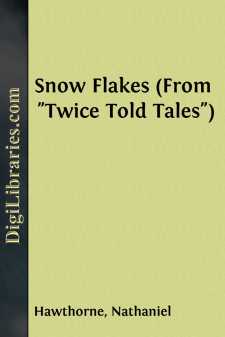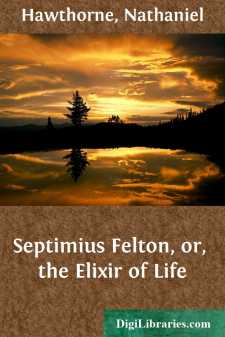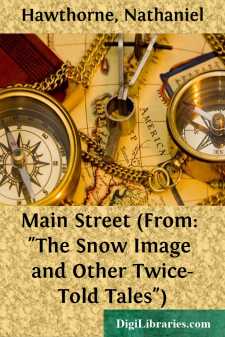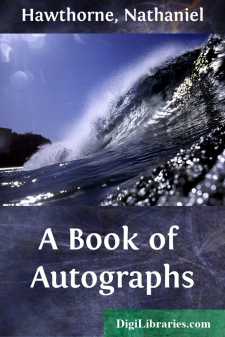Categories
- Antiques & Collectibles 13
- Architecture 36
- Art 48
- Bibles 22
- Biography & Autobiography 813
- Body, Mind & Spirit 142
- Business & Economics 28
- Children's Books 17
- Children's Fiction 14
- Computers 4
- Cooking 94
- Crafts & Hobbies 4
- Drama 346
- Education 46
- Family & Relationships 57
- Fiction 11829
- Games 19
- Gardening 17
- Health & Fitness 34
- History 1377
- House & Home 1
- Humor 147
- Juvenile Fiction 1873
- Juvenile Nonfiction 202
- Language Arts & Disciplines 88
- Law 16
- Literary Collections 686
- Literary Criticism 179
- Mathematics 13
- Medical 41
- Music 40
- Nature 179
- Non-Classifiable 1768
- Performing Arts 7
- Periodicals 1453
- Philosophy 64
- Photography 2
- Poetry 896
- Political Science 203
- Psychology 42
- Reference 154
- Religion 513
- Science 126
- Self-Help 84
- Social Science 81
- Sports & Recreation 34
- Study Aids 3
- Technology & Engineering 59
- Transportation 23
- Travel 463
- True Crime 29
Old News (From: "The Snow Image and Other Twice-Told Tales")
Categories:
Description:
Excerpt
There is a volume of what were once newspapers each on a small half-sheet, yellow and time-stained, of a coarse fabric, and imprinted with a rude old type. Their aspect conveys a singular impression of antiquity, in a species of literature which we are accustomed to consider as connected only with the present moment. Ephemeral as they were intended and supposed to be, they have long outlived the printer and his whole subscription-list, and have proved more durable, as to their physical existence, than most of the timber, bricks, and stone of the town where they were issued. These are but the least of their triumphs. The government, the interests, the opinions, in short, all the moral circumstances that were contemporary with their publication, have passed away, and left no better record of what they were than may be found in these frail leaves. Happy are the editors of newspapers! Their productions excel all others in immediate popularity, and are certain to acquire another sort of value with the lapse of time. They scatter their leaves to the wind, as the sibyl did, and posterity collects them, to be treasured up among the best materials of its wisdom. With hasty pens they write for immortality.
It is pleasant to take one of these little dingy half-sheets between the thumb and finger, and picture forth the personage who, above ninety years ago, held it, wet from the press, and steaming, before the fire. Many of the numbers bear the name of an old colonial dignitary. There he sits, a major, a member of the council, and a weighty merchant, in his high-backed arm-chair, wearing a solemn wig and grave attire, such as befits his imposing gravity of mien, and displaying but little finery, except a huge pair of silver shoe-buckles, curiously carved. Observe the awful reverence of his visage, as he reads his Majesty's most gracious speech; and the deliberate wisdom with which he ponders over some paragraph of provincial politics, and the keener intelligence with which he glances at the ship-news and commercial advertisements. Observe, and smile! He may have been a wise man in his day; but, to us, the wisdom of the politician appears like folly, because we can compare its prognostics with actual results; and the old merchant seems to have busied himself about vanities, because we know that the expected ships have been lost at sea, or mouldered at the wharves; that his imported broadcloths were long ago worn to tatters, and his cargoes of wine quaffed to the lees; and that the most precious leaves of his ledger have become waste-paper. Yet, his avocations were not so vain as our philosophic moralizing. In this world we are the things of a moment, and are made to pursue momentary things, with here and there a thought that stretches mistily towards eternity, and perhaps may endure as long. All philosophy that would abstract mankind from the present is no more than words.
The first pages of most of these old papers are as soporific as a bed of poppies. Here we have an erudite clergyman, or perhaps a Cambridge professor, occupying several successive weeks with a criticism on Tate and Brady, as compared with the New England version of the Psalms. Of course, the preference is given to the native article. Here are doctors disagreeing about the treatment of a putrid fever then prevalent, and blackguarding each other with a characteristic virulence that renders the controversy not altogether unreadable. Here are President Wigglesworth and the Rev. Dr. Colman, endeavoring to raise a fund for the support of missionaries among the Indians of Massachusetts Bay. Easy would be the duties of such a mission now! Hereâfor there is nothing new under the sunâare frequent complaints of the disordered state of the currency, and the project of a bank with a capital of five hundred thousand pounds, secured on lands. Here are literary essays, from the Gentleman's Magazine; and squibs against the Pretender, from the London newspapers. And here, occasionally, are specimens of New England honor, laboriously light and lamentably mirthful, as if some very sober person, in his zeal to be merry, were dancing a jig to the tune of a funeral-psalm. All this is wearisome, and we must turn the leaf....


